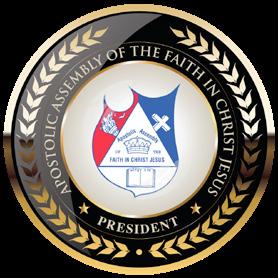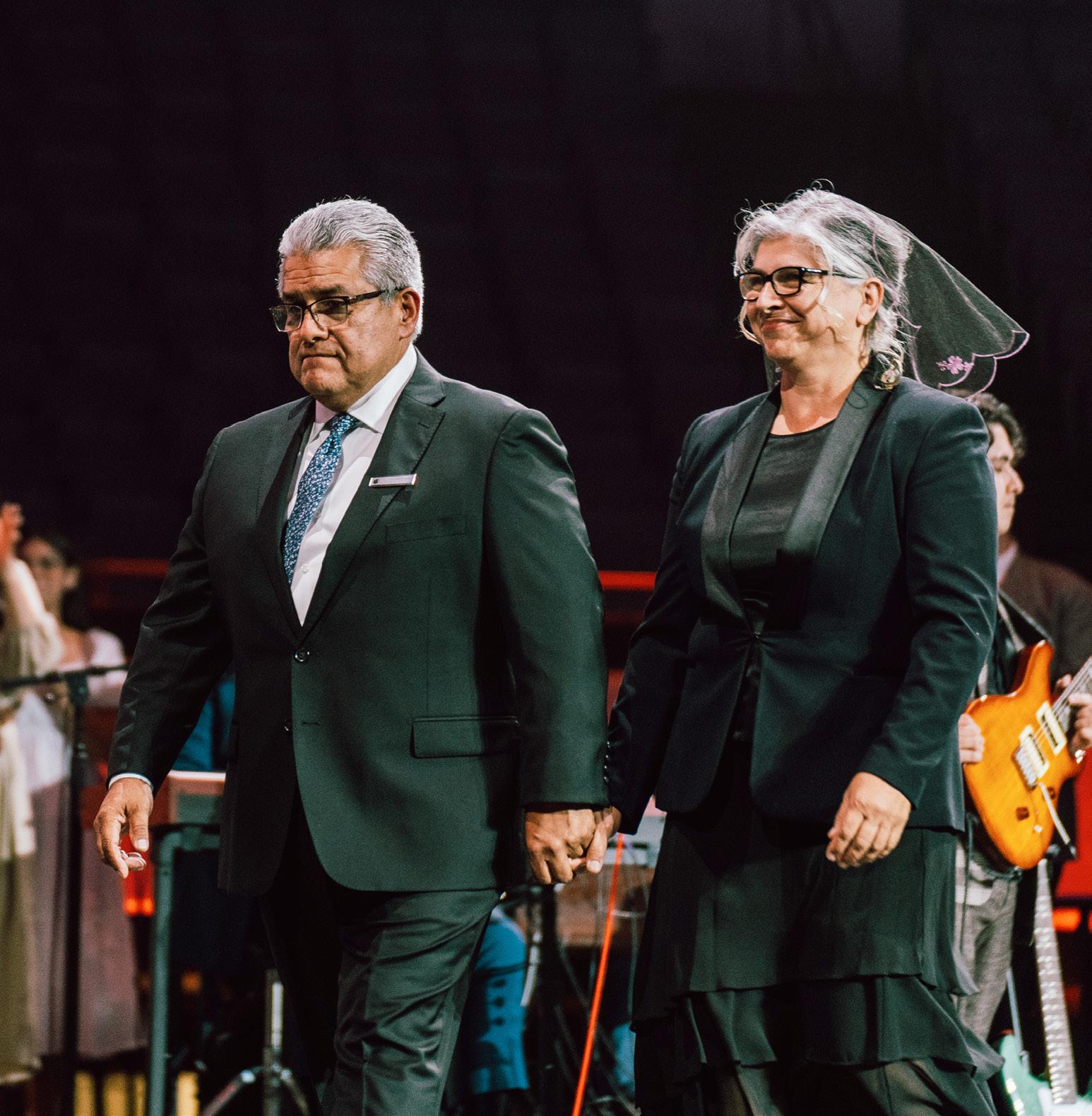
11 minute read
PRESIDENT’S VISION 2023 “GROW THE CHURCH: MISSION”
Dear Brothers and Sisters, Pastors and Bishops, Praise the Lord!
I greet you all in the name of Jesus.
We are entering this new year after having celebrated a glorious convention in Long Beach, California. What a wonderful event. Everything from the business meetings to the daytime breakout sessions were filled with a sense of peace and expectation and finally with powerful manifestations of God in our evening services. We experienced a wonderful move of the Holy Ghost. God richly poured out upon us His blessings.
The New General Board
As most of you already know the Pastors that attended this Convention elected a new general board of directors. I am grateful for the men that were elected by the Pastoral body to direct the affairs of our Church the next four years. Four members of the past administration were reelected to serve on this administration. Bishop Joseph Rodriguez, who served as our General Secretary, was elected to serve as our Vice President, Bishop Andy Provencio, who served as the Secretary of International Missions, was elected to serve as our Church’s General Treasurer. Bishop Francisco Quesada, who served as the Secretary of Social Assistance, was elected as the Secretary of National Missions. Bishop Ismael Martin del Campo, who served for 12 years on previous administrations, comes back to the General Board with a vast amount of experience. I am glad to have him back on the team. Finally, we are pleased to receive the new incoming members of the General Board, Bishop Steve Moran, Secretary of International Missions. Bishop Armando Tamez, Director of Christian Education. Finally, Bishop Sam Rojas, as the new Secretary of Social Assistance. In one of the last meetings of the General Board, prior to the general convention, Bishop John Fortino told us that, “the will of God will be expressed through the vote of the pastors.” I’m confident that took place.
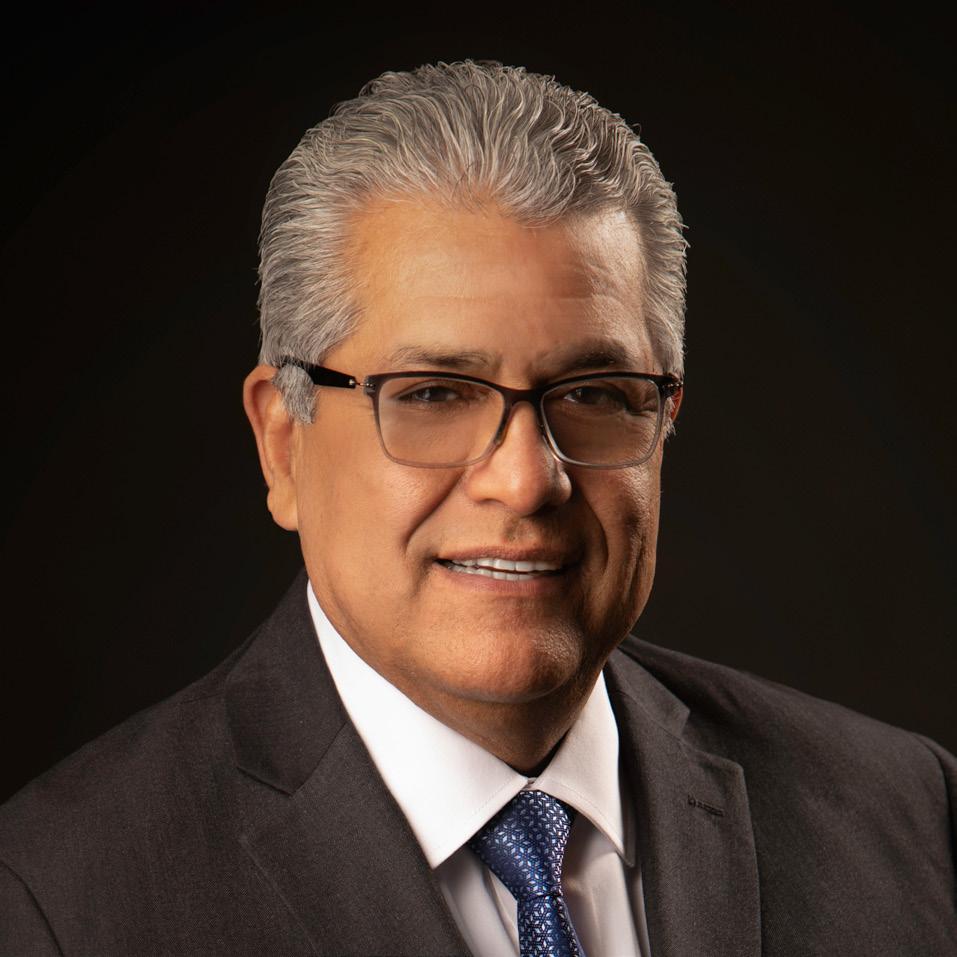
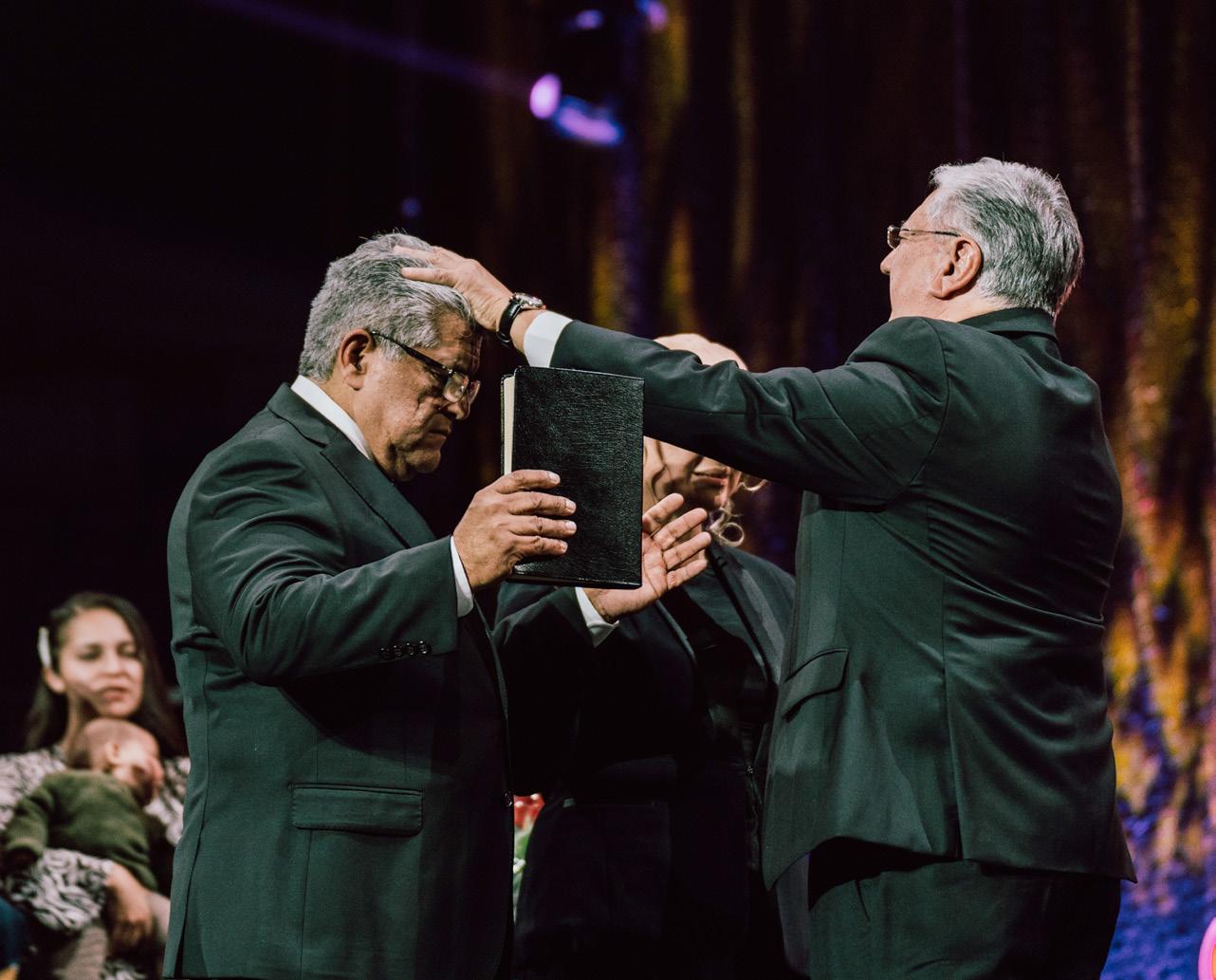
My wife and I feel extremely blessed to have been given the honor of serving the Apostolic Assembly for the next four years as President and First Lady. We are confident in the Lord that He will be with us and prosper the assignment He has given us. We only ask for your prayers and support as we endeavor to be faithful to God’s calling.
The Convention Message
In the message “I will build My Church: MISSION” I tried to convey the following thoughts that I believe the Lord gave me for that occasion.
1) This administration will build on the achievements of past administrations because the kingdom of God is built upon the work of others, line upon line and precept upon precept.
2) It is God who builds the Church. We are only “little stones” or useful instruments that God uses to build His kingdom.
3) The Church is built upon the revelation of the person of Jesus Christ.
4) Jesus builds the Church when the Church lifts Him up. The mission of the Church is to exalt Jesus.
5) The exaltation of Christ in the Church is primarily accomplished through evangelism and discipleship. In other words, Christ is exalted when people come to know Jesus as their savior and submit to Him as their Lord.
6) The strategy of the Church for evangelism and discipleship is the Strategy of Jesus.
Those truths were designed to communicate this thought: Christ is building His kingdom as we work to win people and make disciples. Those truths are summarized in the axiom: BUILD THE CHURCH!
Build The Church
The theme for 2023 through 2026 will be: “Build the Church.” That, I believe, is the work that Christ has given us to do. That will be the battle cry for the next four years. In my heart the phrase, “Build the Church”, has two applications. First, it is a cry unto the Lord. Second, it is an encouraging pronouncement. Let me explain:
A Cry to the Lord:
“Build the Church” is a cry unto the Lord by those who understand that we do not build the Church; Christ does (Matthew 16:18). The Psalmist said, “Except the Lord build the house, they labour in vain that build it: except the Lord keep the city, the watchman waketh but in vain. Interestingly, this verse identifies two
“builders”: first, the laborers (those laying the bricks) and two, the Builder (the Lord) who is providing direction, materials, intelligence, strength, and the life necessary to complete the project. Without the builder, the laborers are merely laying bricks. Their work will ultimately be fruitless. The message is clear, all building activity, without the great builder is unproductive. Hence our cry to the Lord, “Lord! Build the Church.”
An Encouraging Pronouncement:
“Build the Church” is not only a supplication to God, but it is also an encouraging pronouncement. We all need to be reminded, on a consistent basis, of the importance of laying bricks. He builds. We lay the bricks. He devised the plan. We build according to His directions. Yes, without Him nothing is possible, but here is the complementary truth, God uses men and women as His helpers. A minor but essential role.
Why does God order things this way? Because He is glorified by the magnificent results of our feeble efforts (I Corinthians 1:26-31). The Bible teaches that the greater work is the Lord’s. For example: salvation is not the fruit of human endeavors or eloquence, it is the working of God that saves men. It is the Spirit working omnipotently through preaching that rescues the lost. We witness; He saves. We pray; He fills people with the Holy Ghost. It is the Word of God that molds submissive men and women into the image of Christ. His is the greater work. The Motto “Build the church” is meant to be one of encouragement when after having greeted each other with “Paz de Cristo” and having engaged in heart-felt conversation, we depart encouraging each other with these words, “Let’s Build the Church.” These words represent a new way of thinking. They are the words of the builders of the Kingdom. A new mindset must arise among us, one that believes our time has come. One that believes that the Lord has given us a moment in time. We must take full advantage of it. It’s time to build the church!
A Twofold Mandate:
The call to “Build the Church” is twofold. It is a call to build in quantity and in quality. We need to reach more people with the Gospel. Evangelism grows the Church in quantity; discipleship grows the Church in quality.
We must grow in numbers. If we truly believe that the eternal destiny of the unsaved is hell and that hell is eternal, then we must work diligently to see that the lost are saved. The Church will grow in numbers as the lost come to Christ. That must be a primary reason why Luke memorialized the 3,000 baptisms (Acts 2:41) at Pentecost. It must also be the reason why Luke mentioned 5,000 people getting baptized in Jesus name a short time later (Acts 4:4). Numbers speak of the effectiveness of the Gospel and of the commitment of believers to its mission.
We must grow in quality until everything about us is excellent. The call to grow the Church in quality is a call to grow the Church’s essential elements. The Church must grow in love, in faith, and in hope (I Corinthians 13:13). The call to build the Church is a call to build our relationships with God, and with each other (Mark 12:28-31). It is a call to build healthy families and vibrant churches filled with mighty manifestations of His presence. It is a call to be doctrinally sound, to love our modest way of life, and to love the scriptures. Growing in quality means growing committed, nonjudgmental saints that love God and love the lost. That Church is and will continue to be a healthy, growing, powerful Church.
Reaching The Lost Is Our Mission The Strategy Of Jesus Is Our Vision
I see the Apostolic Assembly as a healthy, growing, Spirit-filled, Apostolic Cellular Church.
During the administration of Bishop Daniel Sanchez, the Church wrote out its mission statement: We exist to exalt God, equip the Church, and evangelize the world. Reducing our mission to a twelve-word statement was an important endeavor. Its end was to focus the Church’s vision and energies on the Church’s mission. A mission statement clarifies the work that is to be done and therefore serves to focus the work of an organization. For us, as believers in Christ, a mission statement is not something we have great latitude to define. Christ’s commands regarding the work of the Church are clear and immutable: love people into the Kingdom of God and make them disciplined followers of Christ. This mandate is not new for the leadership or members of our Church. We have long understood the mission. It has been in the Bible for over 2,000 years and discussed within our ranks in detail since our Church’s beginning. The Mission of the Church is incontrovertible. It is not to be questioned or debated. The mission of the Church is to evangelize the lost and make disciples. That cannot change.

There are differences between the Church’s mission and its vision. Let me name a few:
1) A vision proceeds from a mission. Mission first then vision.
2) A mission is permanent a vision is not. The mission cannot change, the vision may.
3) A mission tells us what we are to do.
4) A vision looks to the future and asks: Where are we going and how will be get there?
The Strategy of Jesus is the vision or plan of the Church for winning the lost and making disciples. It answers two questions: First, Where do we want to go? Answer: we endeavor to be a healthy, growing, Spirit-filled, Apostolic Cellular Church. Second, it also answers the question: How shall we get there? Answer: the processes described in the Strategy of Jesus. Essentially, the Strategy of Jesus answers the two most important questions that are asked when speaking about a vision. Where are we going and how shall we get there? When asked what is the strategy that the Apostolic Assembly uses to evangelize sinners and disciple believers, my answer is: the Strategy of Jesus. That is clear in my mind. We need the Strategy of Jesus because missions need strategies. Without strategies not much will get done.
There has been a “quiet controversy” among some of us surrounding our strategy. While an important number of pastors, bishops, and presidents attest to the fact that the Strategy of Jesus has made a significant difference in the health and growth of their churches, still others quietly, and sometimes not so quietly, question if it will work for them.

What I am proposing is that we end the controversy and that we get to the work of the mission. If your church is healthy and growing by emphasizing signs and wonders, wonderful! Let’s build the Kingdom. If Bible studies have reaped a harvest of souls, we applaud you. Let’s grow the Church. If what is working for you is rehabilitation programs, excellent! Let’s build the Church. Let’s end the debate about whether one system or another works better or at all, let’s focus on the mission. Let’s be productive. John chapter 15 registers Jesus’ talk to His disciples on the vine and the branches. There He said this, Herein is My Father glorified, that ye bear much fruit; so shall ye be My disciples.” Then in verse 16 of the same chapter He said, Ye have not chosen Me, but I have chosen you, and ordained you, that ye should go and bring forth fruit, and that your fruit should remain: . . .” God wants a fruitful, growing Church. Not a Church that is engaged in polite controversies.
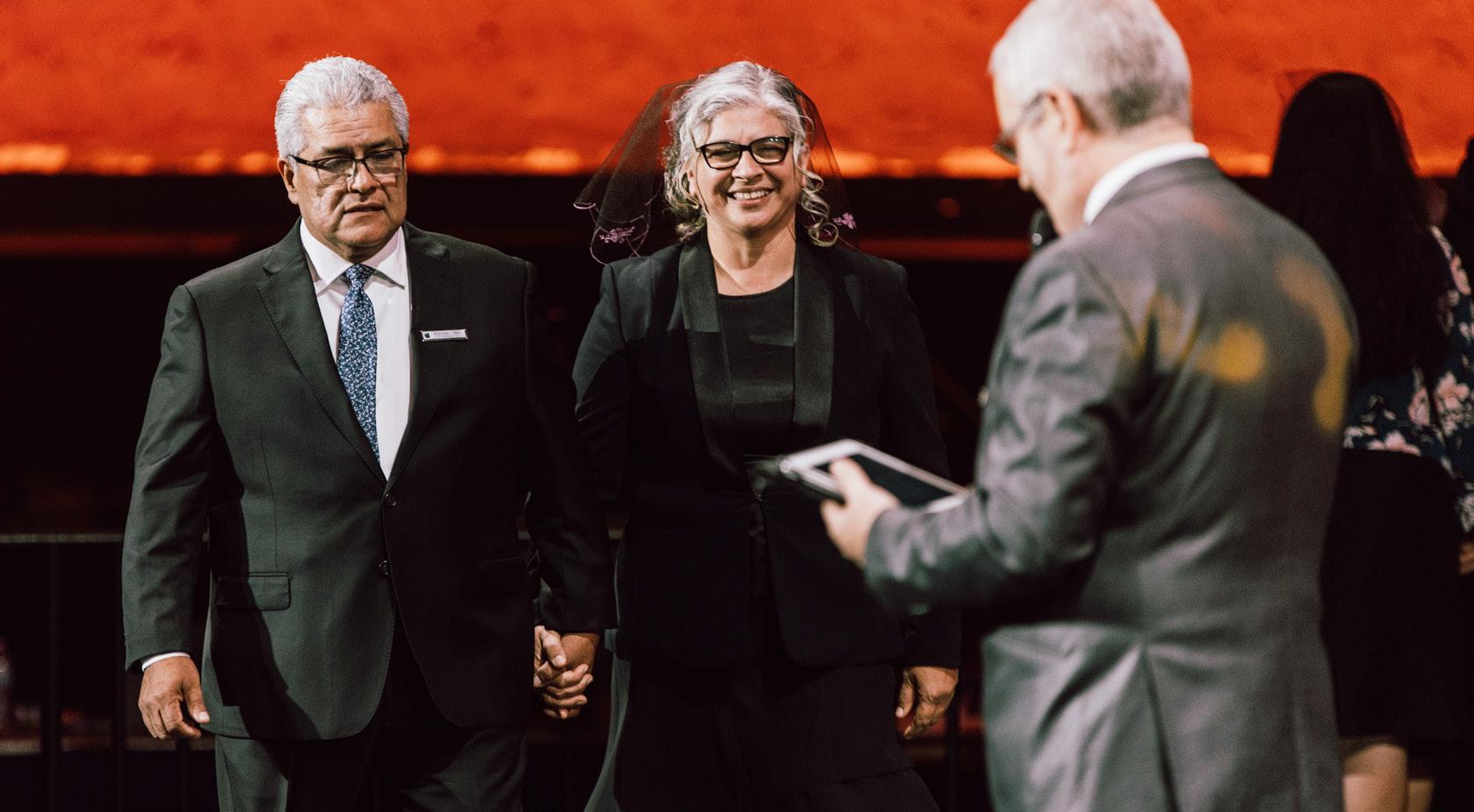
For every man that has it in their heart to start a new work, we offer you the Strategy of Jesus. For every Pastor that is hungering for greater effectiveness in winning the lost and making disciples, we offer you the strategy of Jesus. For those churches with stagnant or decreasing membership, we offer you the Strategy of Jesus. The point is that what is most important is the spiritual and numeric growth of the Church.
Speaking The Same Thing
President Fortino emphasized the importance of unity throughout the 10 years that he served as president of our Church. His call to unity and the concurrent transparency that he brought to the Church set the stage for what I am now calling the leaders and membership of our Church to think, speak, and do, let’s win souls. We must all be of the same mind and speak the same thing for the purposes of God to advance. Growth must be our language. It must be in the heart and on the lips of our Church.
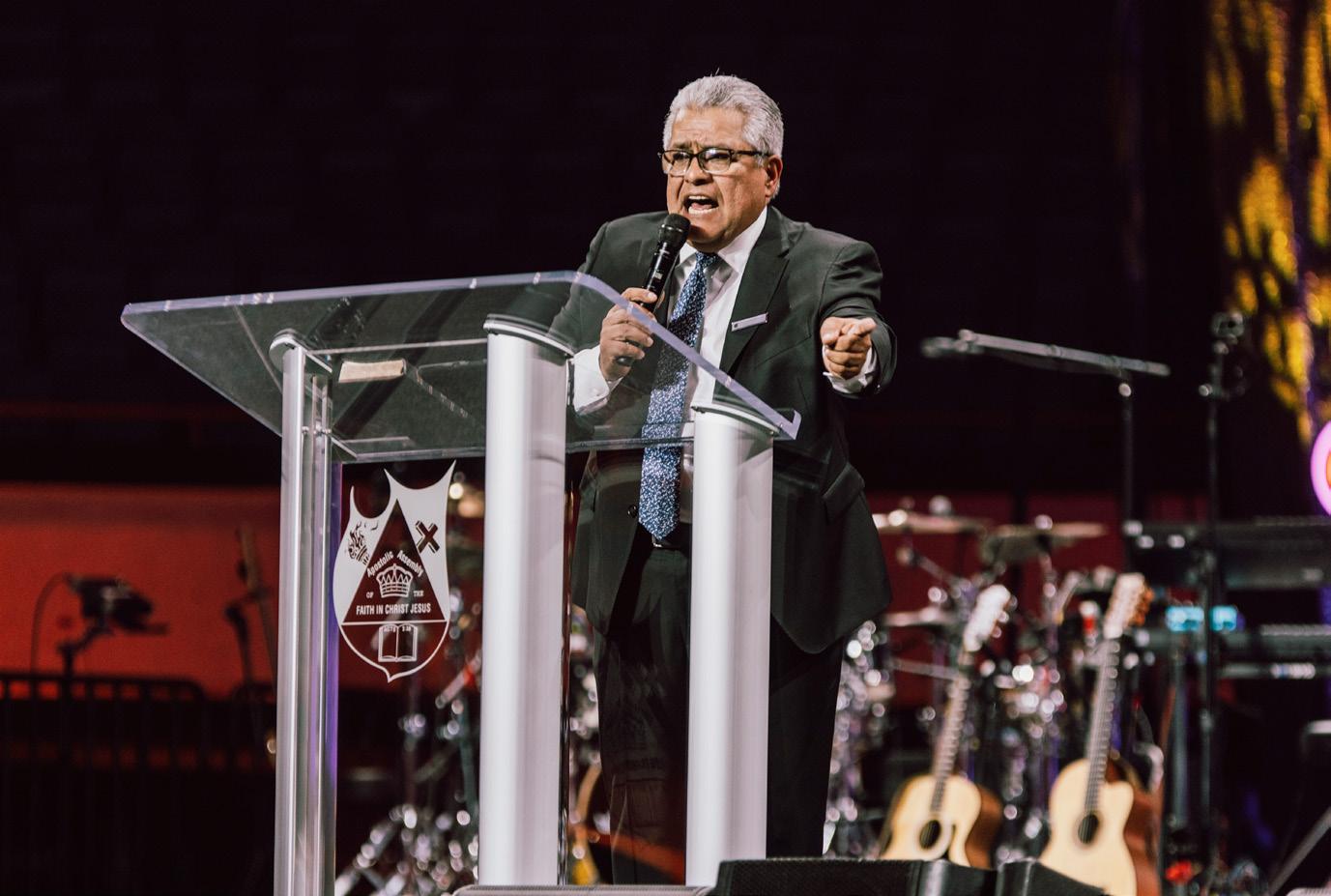
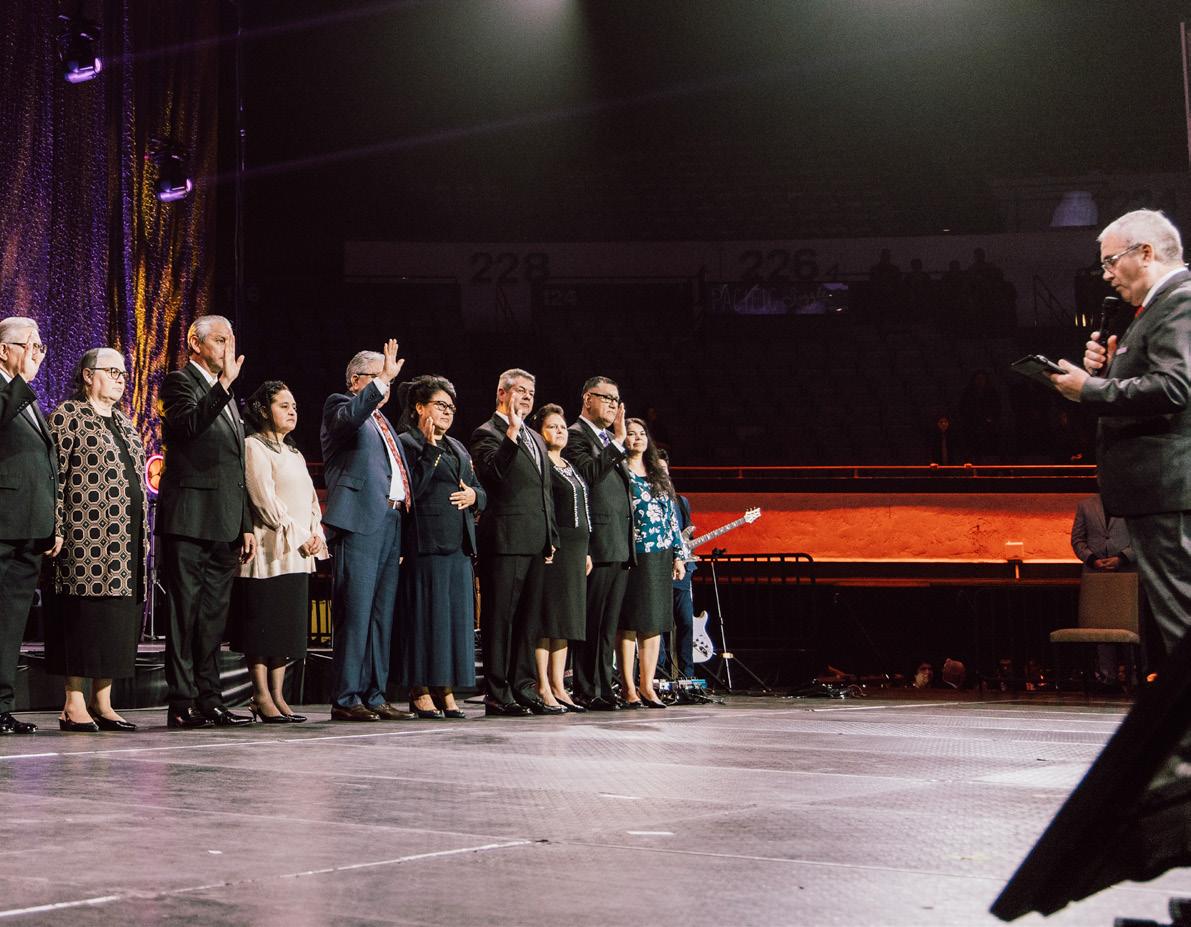
Paul’s admonition to the Corinthian church, among many other things, was that their unity be evident in the way they spoke and in the way they thought. The unity Paul was calling them to was profound. That kind of unity is not found in human judgement, because everyone has an opinion about most things. The kind of unity Paul was calling the Corinthian church to is only possible when what you’re talking about is true. Listen to Paul’s words to the Corinthians, “I beseech you, brethren, by the name of our Lord Jesus Christ, that ye all speak the same thing, and that there be no divisions among you; but that ye be perfectly joined together in the same mind and in the same judgment.” Later to the Philippians he wrote, “Fulfil ye my joy, that ye be likeminded, having the same love, being of one accord, of one mind.”
There are things that unite the Church. Those things are the essentials. For example, the commandments of our Lord or the Church’s mandates are points of absolute unity among us. Church unity is not only possible, a profound unity, the deepest kind of unity, is something we should experience when it comes to the mission. “Let’s Build the Church!” Let’s win souls and make disciples. True, from-the-heart unity can only be experienced on divine mandates. The Apostolic Assembly should live in unity of mind, word, and deed concerning the mission.
Revival Is Here
We often talk about revival as a future event that God will sovereignly decree upon us at a time of His choosing. I think that is partially true. However, to define revival as only having to do with a sovereign act of God without including human responsibility is to miss out on part of the equation necessary to see a mighty move of God in our time. The truth is that When God is ready to move, He moves the hearts of men. God acts in concert with His men and women
There is probably no greater move of God in the world than Pentecost (Acts 2:1-4). The anointing and power that rested upon the Prophets of old was about to be poured out upon every believer who trusted in the risen Christ. There is no question that the day of Pentecost was God’s choice for the beginning of a mighty move of
God that touched and transformed the world. However, sovereign will was not the only factor involved in this spectacular move of God. Submission to God’s will, the surrender of 120 believers to God also played an important role in what God did. “Go to Jerusalem and wait until you are endued with power from on high” was Jesus’ command (Acts 1:4-5). The Disciples went to Jerusalem and tarried there until the promise of the Father was come. They waited ten days in prayer and supplication. Then, with a sound from heaven as of a rushing mighty wind and cloven tongues of fire, it came. Revival came in the form of an infilling of power.
Revival came because the approximately 120 believers trusted God in prayerful obedience. Times of revival are not cheap nor are they neat nor challenge free. We must work for revival. We must tarry for what we believe God has commanded. The revival of Pentecost not only touched a nation or people, as it had in the Old Testament. This revival spread from city to city, province to province, nation to nation, until it had touched the then known world. There has never been a greater revival in the annals of human history than Pentecost.
Every revival since then has displayed the same pattern. Revivals are the result of God’s choosing (sovereignty) and the movement of God’s People (responsibility). The church must not only believe that revival will come, but we must position ourselves for revival. This move of God is available to all who act in accordance with God’s sovereign will. Revival is available to all of us who organize ourselves to do what God cares about most that the world know Jesus Christ. We can have revival if we prepare for it and seek it with all our hearts.
LET’S BUILD THE CHURCH!


In Christ, Bishop Felipe A. Salazar President
